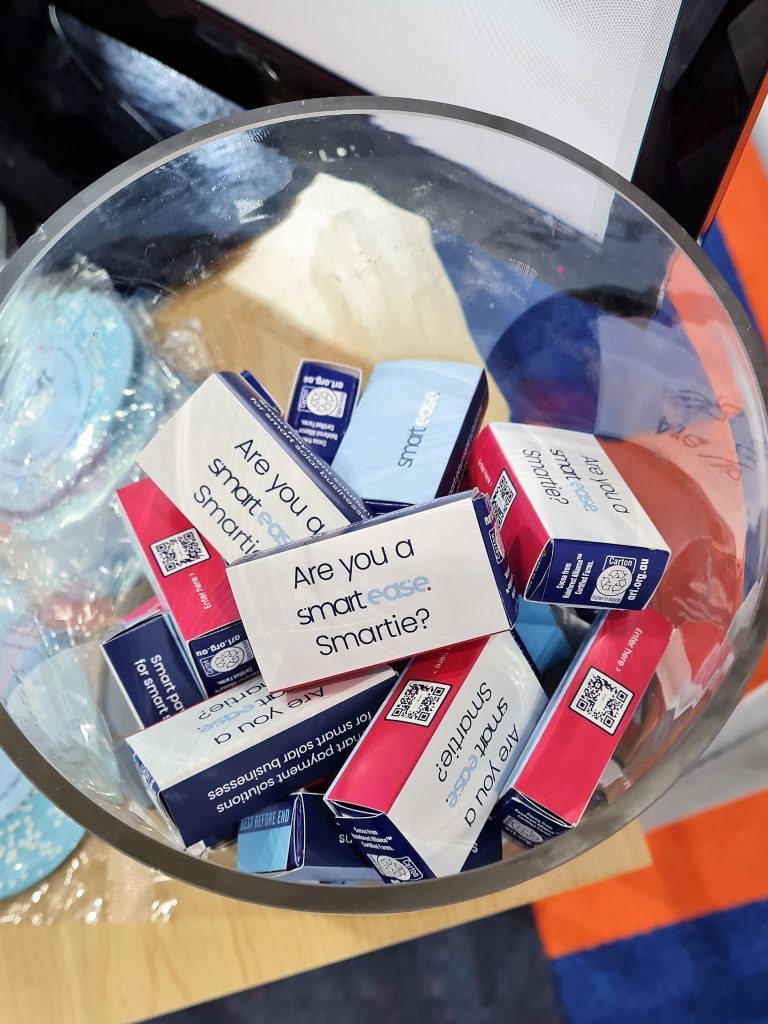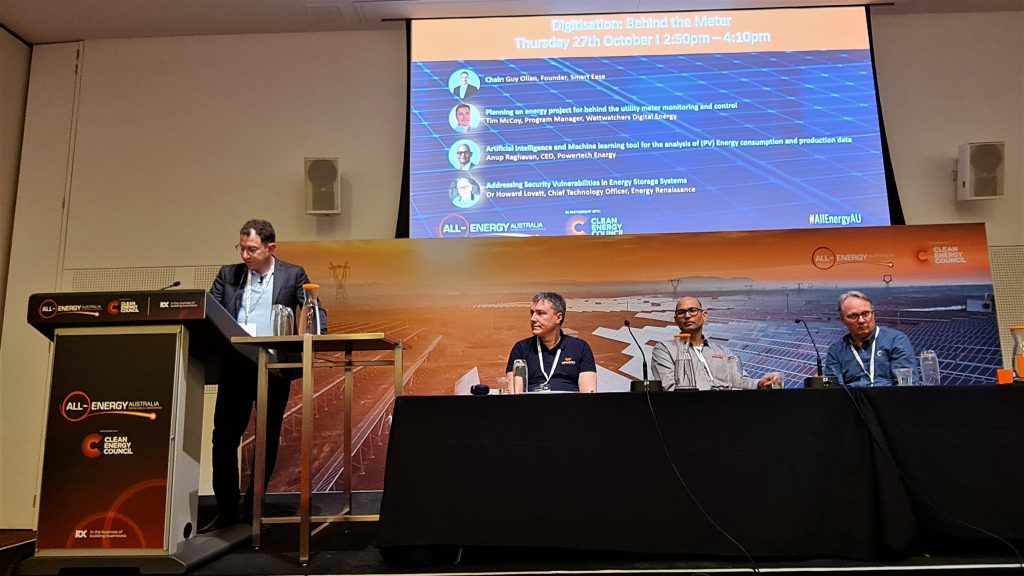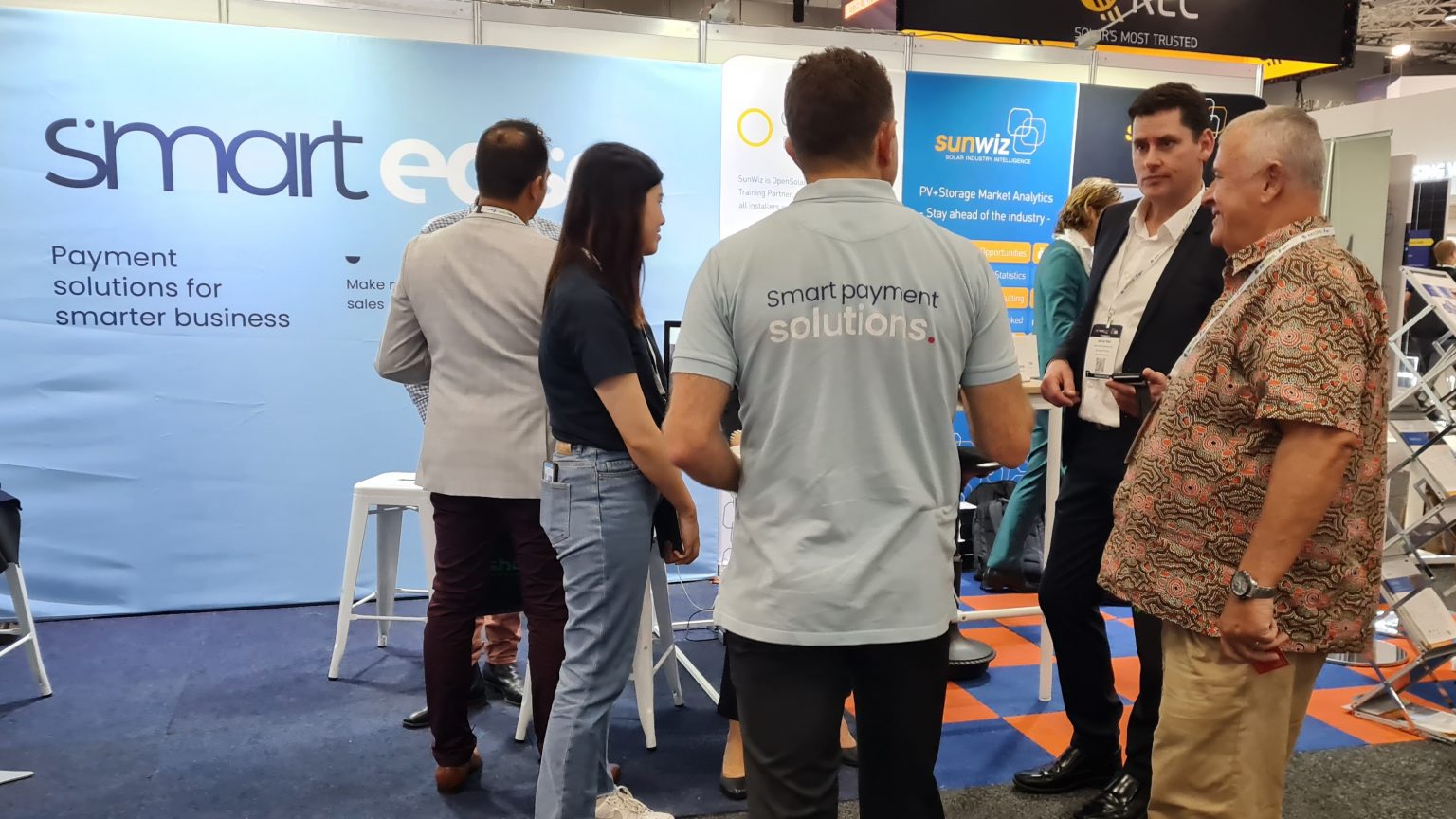Last week, over 10,500 delegates and 269 exhibitors shared the latest from the clean energy sector across 48 jam-packed hours at Melbourne’s MCEC.
From preparing for the forthcoming EV-uptake explosion to harnessing energy data through advanced digitisation, the event explored what we can all do today to make sure we’re future-ready.
Along with hosting our busy stand, and connecting with friends, we put our ear to the ground to gather intel and insights.
Here are the highlights.

Electric vehicles are coming (a lot faster than you think)
There’s no doubt that electric vehicles represent the biggest revolution in motoring since the Model T Ford. Last year, nearly 10% of all vehicles sold globally were EVs, and millions of Australians anticipate their next car will be electric.
The challenges that held drivers and fleet managers back – the shortage of vehicles and models, low financial incentives and a lack of public chargers – are being rapidly overcome. As these barriers fall and access to free energy via solar power increases, expect to see EV uptake soar.
Where’s the opportunity for you in all this?
Buying and installing a smart charger is essential if you drive an EV (or have staff or customers that do). Plugging an EV into a regular socket is painfully slow and potentially unsafe, so it’s only a matter of time before supply and installation of rapid-charging ‘wallboxes’ becomes the new in-demand service.
Upskilling and marketing this service now will pay dividends in the future for smart businesses. Join the invitation list for our 2023 webinar on how solar installers can best take advantage of the EV ‘goldrush’.
Data, digitisation and… robots?
How smart is your home, your workplace, and your customers’ workplaces? If everything is still a little ‘analogue,’ brace yourself: things are about to get futuristic.
The smart buildings of the next decade will not only feature mind-blowing hardware such as ‘smart’ solar energy systems, integrated vehicle charging, intelligent appliances, and a world of power-storage options (including using your car to power your house). They’ll also boast software to match.
This software will give businesses and households the power to use data-driven insights to optimise their energy consumption at a granular level. Artificial intelligence will automate this process, with fine-tuned predictive algorithms anticipating usage patterns and aiding consumption control.
Where’s the opportunity for you in all this?
If you’re a solar installer, it’s time to think about how to broaden your service offering. The leading solar companies of the future will offer ongoing services that rely on continuous monitoring and AI solutions to drive preventative maintenance and system optimisation.
Decarbonisation is the number one priority
Businesses across all sectors have decarbonisation on the mind. Current modelling shows that climate-change-related disasters will cost Australia $73 billion per year by 2060 and $1.2 trillion over the next 40 years, even if action is taken now to reduce emissions.
“Make no mistake, [decarbonisation] will be expensive, and the cost should be shared fairly. But the costs of action outweigh the cost of inaction and are outweighed by the benefits of action.”
Decarbonisation: The Pathway to Net Zero, Lisa Zembrodt, Principal and Senior Director, Schneider Electric Sustainability Business
So, what is big business doing?
Right now, their focus is on energy efficiency and productivity, electrification of everything and the construction and management of renewable energy assets like rooftop solar. Integrating EVs and rolling out charging infrastructure and energy storage are high on the priority list, while innovation continues in the areas of digitisation, smart and micro grids.
Most importantly, key players in business are pushing for a regulatory framework which enables and mandates our transition from fossil fuels. This is a crucial piece of the puzzle which will accelerate decarbonisation across all industries.
Where’s the opportunity for you in all this?
Big businesses are subject to closer scrutiny than SMEs when it comes to working towards net zero. The pressure is on for all organisations (especially heavy polluters) to demonstrate their commitment through action.
This is great news for solar installers. In Australia, industry estimates suggest that only 15% of commercial roofs (versus 35% of residential) have solar panels. In New Zealand, commercial solar penetration sits at a low 5%. If you’re not already targeting the commercial solar market and marketing your business as experts in this space, now is the time to start.

More industries than ever are adopting renewable energy. Speak to your account manager for tips on selling to emerging sectors today.

